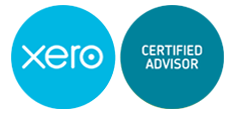The Employment Allowance (EA) is a £5,000 allowance set against employers National Insurance Contributions (NICs) and has to be claimed each tax year if the employer qualifies. This allowance was introduced in 2014/15 and was increased by £1,000 from £4,000 to £5,000 from April 2022. Employers make a claim for the Employment Allowance through their payroll software. They do this by completing and submitting a Real Time Information – Employer Payment Summary (EPS) to HMRC. The employer must enter “Yes” in the “Employment Allowance Indicator” field of the EPS confirming that they are eligible to claim the allowance.
Eligible employers can claim the Employment Allowance at any time during a tax year. Employers may also claim the Employment Allowance against closed tax years, provided they have not already claimed the allowance for those years. However, claims for closed tax years are limited to the four tax years falling before the current tax year.
The Employment Allowance can be claimed by most employers who pay secondary Class 1 NICs on their employees. This includes:
- businesses (includes self- employed persons, companies and partnerships who have employees)
- charities (includes private businesses that have charitable status such as schools, academies, further education colleges and universities)
- Community Amateur Sports Clubs
If two or more companies are connected with one another, or two or more charities are connected with one another, then only one of those companies/charities may claim the Employment Allowance and they must decide which company/charity claims the allowance.
For recently updated guidance on connected businesses visit: https://www.gov.uk/hmrc-internal-manuals/national-insurance-manual/nim06560
Other Employers Excluded from claiming the Employment Allowance
Employers are not eligible to claim the Employment Allowance where their employers’ Class 1 National Insurance liabilities in the previous tax year exceeded £100,000.
Another important exclusion from EA are single director companies where the director is the sole employee of the company.
Employment Allowance counts towards the total de minimis State Aid you’re allowed to get over a 3 year period. Employers that exceed the de minimis State Aid threshold for their sector (Agriculture products for example 20,000 euros) are also excluded from claiming EA.
Please contact us if you need help with your payroll. Our industry-leading payroll software and payroll delivery systems make it easier and more efficient for you to access your payroll reports, payslips and statistics.
Find out more about BM Connect’s suite of outsourced bookkeeping, management accounting and payroll solutions and choose a package which is best suited to your needs and budget.
Get a free, no obligation quote today. Contact us.






